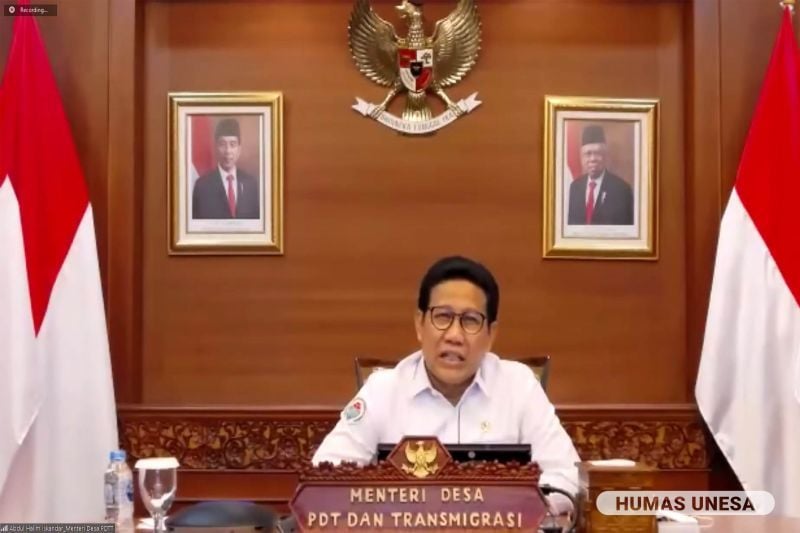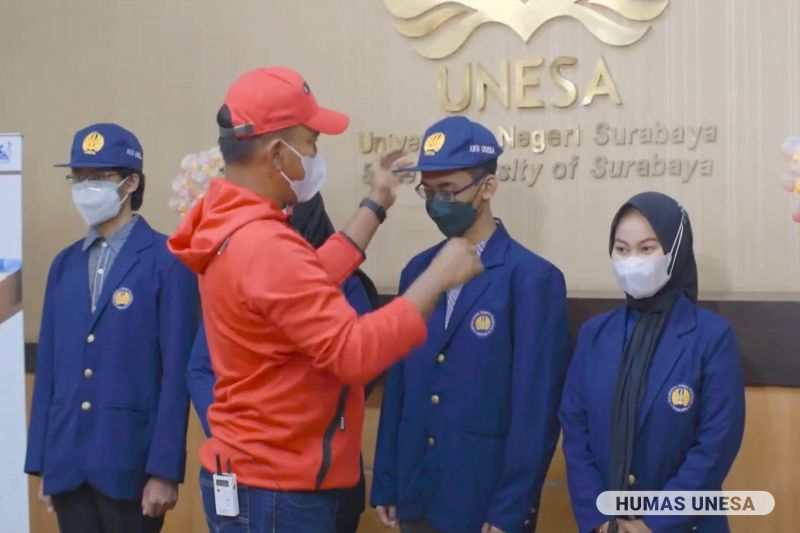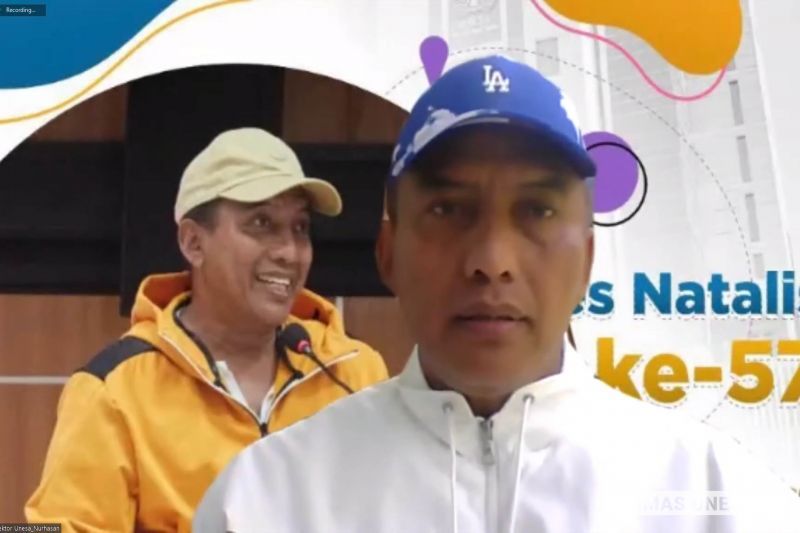
www.unesa.ac.id
Unesa.ac.id, SURABAYA - In accelerating village development, collaboration plays an important role. For this reason, the Ministry of Villages, Development of Disadvantaged Regions and Transmigration (Kemendesa PDTT) continues to build collaborations with various parties, including with campuses. The role of the campus, including through KKNT students, must be able to produce innovations for villages that grow and progress.
This was conveyed by the Kemendesa PDTT, Dr. (HC). Drs. H. Abdul Halim Iskandar, M.Pd., when releasing 2,905 UNESA KKNT participants on Thursday, February 24, 2022. The man who is often called Gus Halim said that the Kemendesa PDTT collaborated with the campus which became known as the Higher Education Forum for the Village (Pertides) as a forum for higher education associations that concentrate on the revival and independence of the village.
Pertides, is expected to be a justification for campus presence to provide scientific benefits, skills and knowledge for the community. The tridharma of higher education must be implemented in the village. In the aspect of education, for example, it must allow the birth of village heads, village officials and village women who are visionary, reliable at work and able to move the village economy.
Campus research must be able to detect real community problems, to produce appropriate technology, which makes it easier for villagers to do productive work. In addition, campus service must be the basis of innovation in accelerating the development of village independence.
"This is where the urgency of KKN is. It is expected to be a means for campuses to accompany villages, improve the quality of village human resources and be part of efforts to accelerate village development. Of course the focus is on accelerating the achievement of sustainable development goals (TPB) or Village SGDs," he explained.
According to him, the UNESA KKNT carries five themes; teaching assistance, village projects, entrepreneurship, humanitarian, and independent projects or studies help accelerate the achievement of Village SGDs. For example, the reforestation program will support the achievement of the 15th village SGDs, a village that cares about the terrestrial environment. For example, the KKNT education program can support the 4th Village SGDs, quality village education.

www.unesa.ac.id
He advised students to collaborate with village assistants. Village assistants are the 'biological children' of the Kemendesa PDTT in each village. "I always order every KKN student to be supported, assisted in communication, discussion and mapping of various problems in the village, so that students can focus on the problems being worked on and the programs being run," he said.
"Hopefully these KKNT students really become an important and inseparable part of village life, adapt well, present innovation-based solutions in the village, follow the culture in the village, don't do things that are contrary to existing things in the village," he ordered.

www.unesa.ac.id
Meanwhile, UNESA Chancellor Prof. Dr. Nurhasan, M.Kes., said that KKNT is a form of MBKM implementation that can accommodate aspects of village development activities, as well as disseminate student entrepreneurship practices in rural communities, explore village potential and care for rural communities.
It is time for the campus to enter the village with the spirit of MBKM. The UNESA KKNT program is expected to be the answer to the current demands of society, especially rural communities. With the role of the campus, including through the dedication of its lecturers and students, it can turn an underdeveloped village into a developing village, a developing village towards an independent village.
"This program is strategic, one of which is in accordance with the policies of the Ministry of Villages PDTT, in the context of accelerating village SDGs. This is our commitment together, to build villages towards a growing and advanced Indonesia," said Cak Hasan.
Head of the KKN Division, Dr. Nurkholis, M.Pd., said that the 2022 UNESA MBKM KKNT was carried out in a hybrid or offline and online manner which took place from 24 February to 25 June 2022. The KKN was carried out in three schemes, namely the Regular KKNT attended by 1,957 students, and the Conversion KKNT from various ministry programs that consisting of 674 teaching campus participants (KM), 76 PHP2D participants, 7 P3D participants, 119 SIB and young fighters.
In addition, the Special Study Program KKNT was attended by 81 students from the IKOM study program and 46 students from PLB. The total of all KKNT participants is 2,905. This year's KKNT has five themes, 1) teaching assistance, 2) village projects, 3) entrepreneurship, 4) humanity, and 5) independent projects or studies. “We are also working with the East Java Forestry Service, 12 regencies, 2 municipalities, the Surabaya City Civil Registration Office, the Surabaya City Education and Culture Office and the UPT Tahura R. Soerjo. [UNESA PR]
Author : Hiline
Editor : @zam
Share It On:






